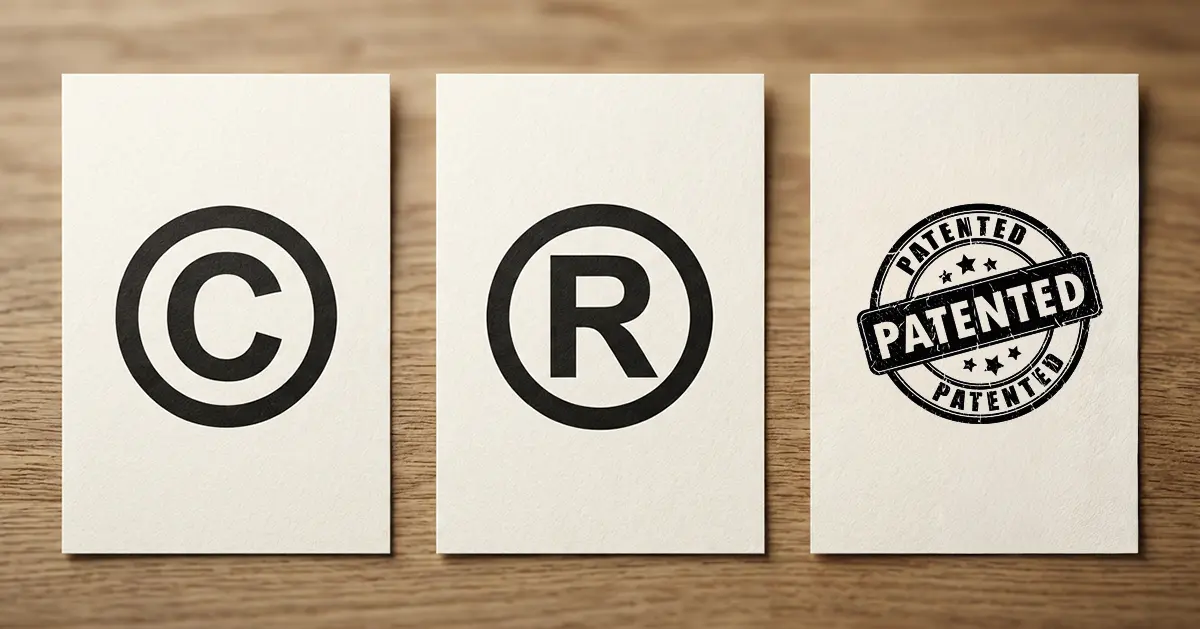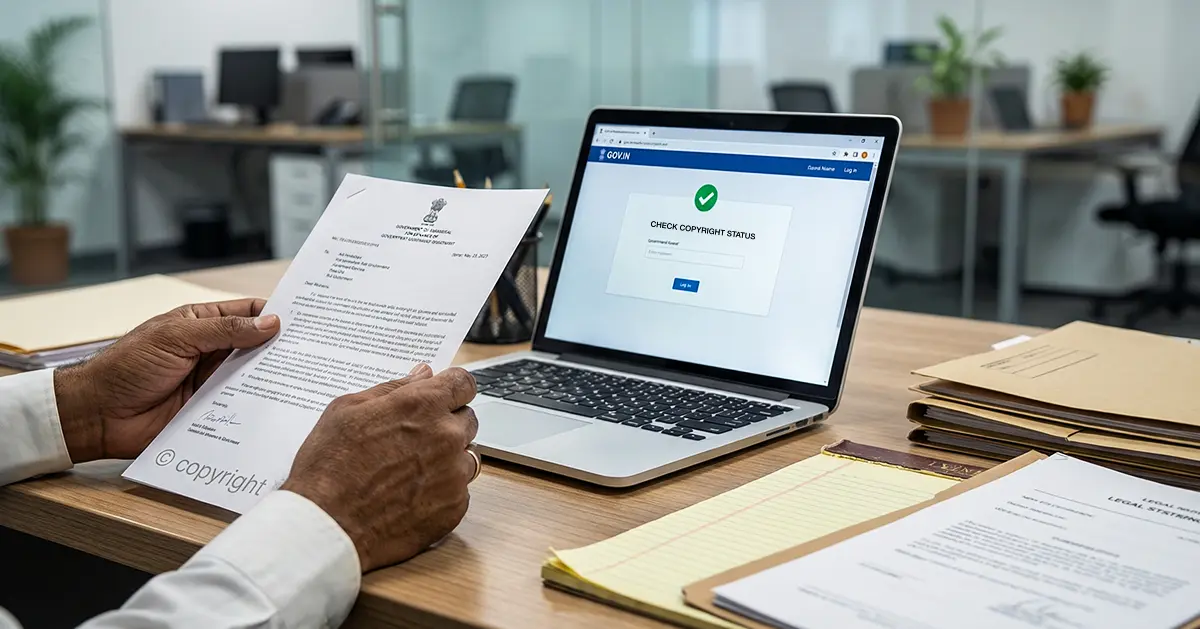
What is Copyright Registration?
Copyright registration serves as an official record of your original work. It offers legal acknowledgment and evidence of your ownership. This becomes crucial when you need to protect your work from unauthorized use. Early Copyright allows you to profit from your creative work with assurance.
Unlike some countries, India doesn’t require you to register your work. Copyright protection begins when you create the work. However, the benefits of early copyright include legal safeguards against infringement of your work.
Who Should Register for the Benefits of Early Copyright?
You should grab the benefits of early copyright if you’ve made something original.As a result, it boosts your legal protections and shields your work from abuse.
Specifically, these folks get the most out of it:
- Writers and Authors: Without question, copyright shields books, blogs, articles, scripts, and more.
- Composers and musicians: Consequently, you own the rights to recordings, lyrics, and compositions.
- Artists and graphic designers: Similarly, copyright safeguards digital designs, illustrations, logos, and artwork.
- Filmmakers and videographers: You can secure screenplays, short films, and video productions.
- Software developers: Register user interfaces, games, apps, and code.
- Photographers: Most importantly, make sure you have copyright protection for your digital edits and original images.
- Startups and Businesses: Register your intellectual property collections, creative materials, and branding assets.
- Agencies & Freelancers: Create authorship and support agreements, and set up licenses.
Common Myths About Copyright Registration
Unfortunately, many creators in India are reluctant to register their work because of common myths. Let’s clear up some common myths:
Myth 1: “Copyright is automatic, so I don’t need to register.”
Reality: Yes, protection starts when you create something. Nevertheless, registering gives you legal proof and strengthens your case.
Myth 2: “Only big companies have to register copyright.”
Reality: On the contrary, small creators can benefit even more from registration by securing their rights.
Myth 3: “It’s costly and complicated.”
Reality: In comparison, it’s inexpensive and simple when you compare it to the legal costs of defending unregistered work.
Myth 4: “I can copyright an idea.”
Reality: To clarify, copyright protects expressions, not ideas. For example, you can copyright a written script but not a concept.
Benefits of Early Copyright Registration in India
There are several benefits of early copyright on your original works:

1. Stronger Legal Protection
Early registration gives you strong evidence of ownership in court. It makes it easier to establish authorship and enforce rights. It makes the legal process simpler, enabling you to act more quickly in case of infringement.
2. Faster Legal Remedies
Registered copyright can help you pursue legal action. It provides effective remedies like injunctions, damage claims, and even criminal charges.
3. Business & Commercial Benefits
The benefit of Early copyright helps you convert your original work into an intellectual property asset. It simplifies licensing, assignments, and collaboration for you. It ensures clarity of ownership, critical for businesses overseeing creative portfolios.
4. International Recognition
Thanks to India’s membership in the TRIPS and Berne Conventions strengthens your copyright overseas. It confirms ownership by providing a clear timeline for legal protection across borders.
Thinking about how to get the benefits of early copyright? We’ve got you with our experts’ guidance for ensuring your creative work achieves heights.
Legal Steps for the Benefits of Early Copyright
Register your work and claim the benefits of early copyright protection. Follow these steps:
- Fill out Form XIV: Visit the Copyright Office website for the form. Then, complete the application with your work details.
- Pay the Registration Fee: Submit the applicable fee online. Legal fees differ for different types of work.
- Provide Ownership Documents: Submit documents like –
- Original or electronic versions of your work.
- Authorship or transfer agreements.
- No Objection Certificates (NOC) from co-authors or employers, if applicable.
- Original or electronic versions of your work.
- Handle Examination and Objections: The Copyright Office examines your application. If objections arise, you’ll get a chance to respond or clarify.
- Get Your Certificate: If no objections arise in your application. The office issues your Copyright Registration Certificate.
Case Studies: Successful Benefits of Early Copyright Registration
Here are some notable examples that showcase the benefits of early copyright:
- T-Series vs. YouTube (2019)
T-Series took action to protect its music rights against YouTube’s unlawful use. The company had filed for copyright and provided proof to claim ownership of their music. By registering, they could seek compensation and remove content that broke the rules as well.
- Anil Gupta vs. Kunal Dasgupta (2002)
The Delhi High Court acknowledged Gupta’s copyright claim on his show concept. His registered concept served as key proof of rightful ownership. Sony aired a similar show without authorization, leading to a legal win.
- Eastern Book Company vs. D.B. Modak (2008)
The Supreme Court backed EBC’s copyright claim on edited court judgments. Getting their work registered helped show that their editorial efforts were unique and deserved protection. Their lawsuit proved that edited material can also get copyright safeguards.
- Shree Venkatesh Films vs. Vipul Shah (2019)
A movie production managed to halt the launch of a Hindi version of their Bengali movie. This was possible because their Bengali film had a registered screenplay. Benefits of early copyright give solid proof of when you created something and show you own it.
Conclusion
Put copyright registration at the top of your to-do list when you’re creating something new. Don’t put it off until someone steals your work to think about what you’ll gain. Early Copyright gives you a strong legal position and shows that you own the work. Once you register, you’ll have solid copyright protection right away.
Ready to protect your creations and enjoy benefits? Connect with RegisterKaro today and secure your intellectual property rights with ease!
Frequently Asked Questions
Typically, the copyright lasts for the creator’s lifetime plus an additional 60 years. Works created by a company enter the public domain sixty years after their publication date.




